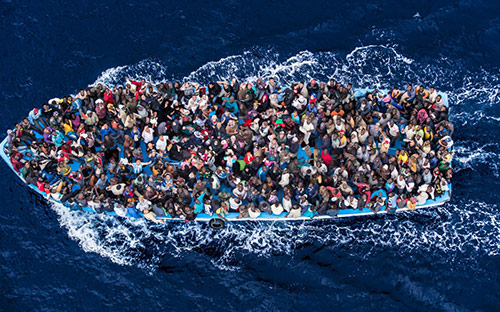“The Memorandum of Understanding (MoU) between Italy and Albania on disembarkation and the processing of asylum applications, concluded last week, raises several human rights concerns and adds to a worrying European trend towards the externalisation of asylum responsibilities,” said today the Council of Europe Commissioner for Human Rights, Dunja Mijatović.
“The MoU raises a range of important questions on the impact that its implementation would have for the human rights of refugees, asylum seekers and migrants. These relate, among others, to timely disembarkation, impact on search and rescue operations, fairness of asylum procedures, identification of vulnerable persons, the possibility of automatic detention without an adequate judicial review, detention conditions, access to legal aid, and effective remedies. The MoU creates an ad hoc extra-territorial asylum regime characterised by many legal ambiguities. In practice, the lack of legal certainty will likely undermine crucial human rights safeguards and accountability for violations, resulting in differential treatment between those whose asylum applications will be examined in Albania and those for whom this will happen in Italy.
The MoU is indicative of a wider drive by Council of Europe member states to pursue various models of externalising asylum as a potential ‘quick fix’ to the complex challenges posed by the arrival of refugees, asylum seekers and migrants. However, externalisation measures significantly increase the risk of exposing refugees, asylum seekers and migrants to human rights violations. The shifting of responsibility across borders by some states also incentivises others to do the same, which risks creating a domino effect that could undermine the European and global system of international protection.
Ensuring that asylum can be claimed and assessed on member states’ own territories remains a cornerstone of a well-functioning, human rights compliant system that provides protection to those who need it. It is therefore important that member states continue to focus their energy on improving the efficiency and effectiveness of their domestic asylum and reception systems, and that they do not allow the ongoing discussion about externalisation to divert much-needed resources and attention away from this. Similarly, it is crucial that member states ensure that international co-operation efforts prioritise the creation of safe and legal pathways that allow individuals to seek protection in Europe without resorting to dangerous and irregular migration routes.”



